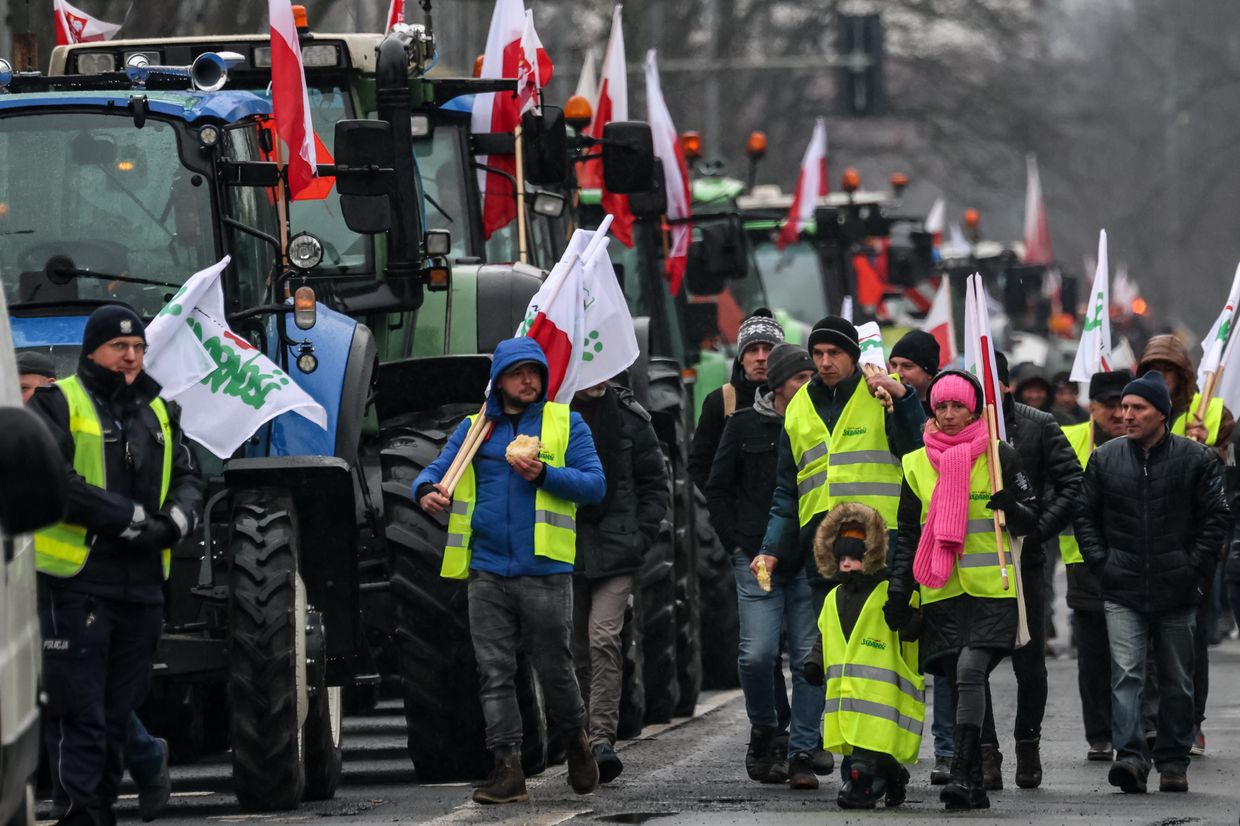Ukraine's infrastructure minister holds talks with Polish official after buses blocked at border

Ukraine's Infrastructure Minister Oleksandr Kubrakov held urgent talks with Polish National Security Bureau head Jacek Siewiera regarding ongoing protests on the shared border, namely the reported blocking of buses, the Infrastructure Ministry said on Feb. 19.
Polish farmers launched a new wave of protests at the border earlier in February, protesting imports from Ukraine and the EU's Green Deal.
While the protests were meant to target the movement of trucks, a video appeared on social media on Feb. 18, supposedly showing protesters preventing the passage of buses with passengers.
"The border blockade is a direct security threat to the country defending itself," Kubrakov said, saying that such actions negatively impact Kyiv's efforts to face "the common enemy," Russia.
"Women and children who sought refuge from the war and return home for various reasons cannot become hostages of business interests."
Kubrakov warned that Russia could use the "inhumane treatment of Ukrainians at the EU border" to stir up tensions between Ukraine and Poland.
Six crossings remain blocked as of Feb. 19: Yahodyn-Dorohusk, Uhryniv-Dolhobychuv, Zosin-Ustyluh, Rava-Ruska-Hrebenne, Medyka-Shehyni, and Korczowa-Krakovets. Farmers said earlier that they plan to extend the protests along the entire border starting Feb. 20 and lasting until March 10.
According to Ukraine's Border Guard Service, around 3,000 trucks are waiting in line at the border with Poland as of Feb. 19, as only a few cargo vehicles per hour are allowed passage.
Farmers from Germany, Belgium, the Netherlands, and France are also expected to join their Polish colleagues at the border, the Border Guard Service said on Feb. 18.












